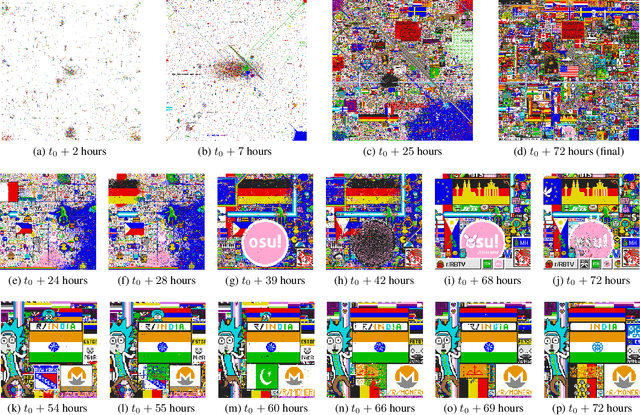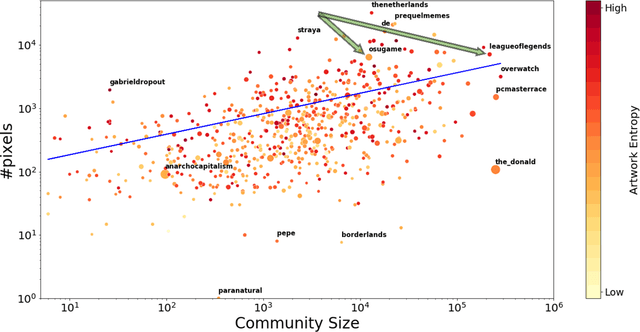With Flying Colors: Predicting Community Success in Large-scale Collaborative Campaigns
Paper and Code
Jul 18, 2023



Online communities develop unique characteristics, establish social norms, and exhibit distinct dynamics among their members. Activity in online communities often results in concrete ``off-line'' actions with a broad societal impact (e.g., political street protests and norms related to sexual misconduct). While community dynamics, information diffusion, and online collaborations have been widely studied in the past two decades, quantitative studies that measure the effectiveness of online communities in promoting their agenda are scarce. In this work, we study the correspondence between the effectiveness of a community, measured by its success level in a competitive online campaign, and the underlying dynamics between its members. To this end, we define a novel task: predicting the success level of online communities in Reddit's r/place - a large-scale distributed experiment that required collaboration between community members. We consider an array of definitions for success level; each is geared toward different aspects of collaborative achievement. We experiment with several hybrid models, combining various types of features. Our models significantly outperform all baseline models over all definitions of `success level'. Analysis of the results and the factors that contribute to the success of coordinated campaigns can provide a better understanding of the resilience or the vulnerability of communities to online social threats such as election interference or anti-science trends. We make all data used for this study publicly available for further research.
 Add to Chrome
Add to Chrome Add to Firefox
Add to Firefox Add to Edge
Add to Edge